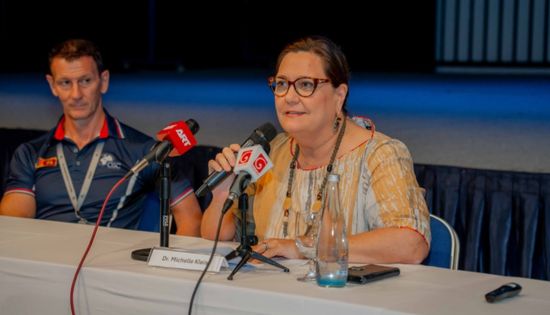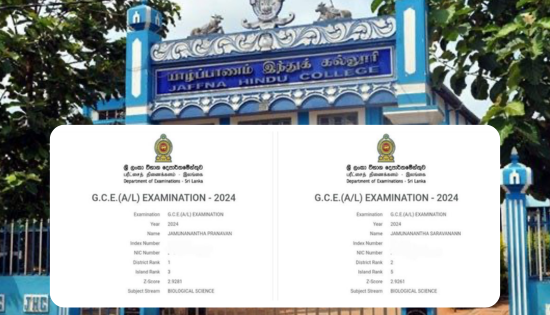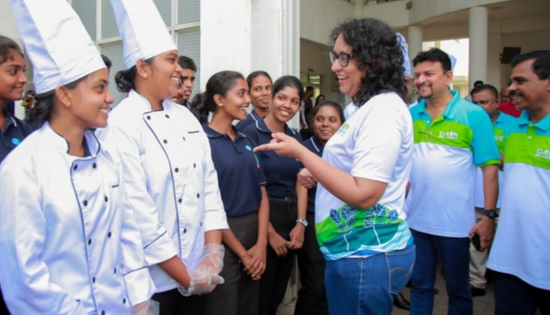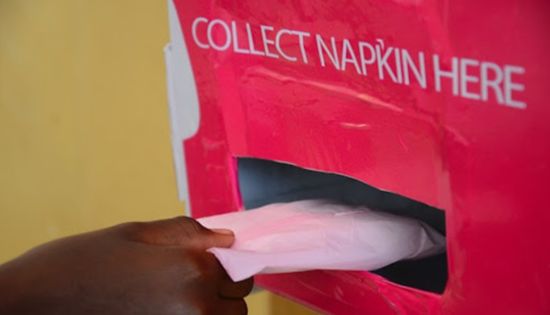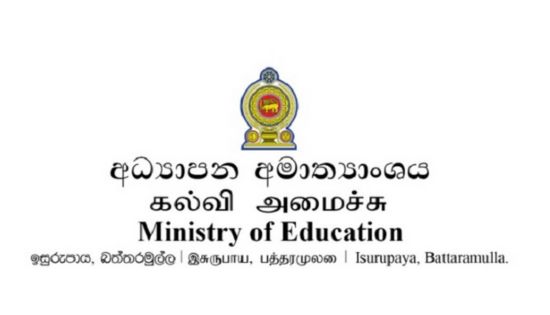A Comprehensive Guide to Scholarships for Sri Lankan Students

Seeking scholarships for higher studies, whether at local or foreign institutions, can be a game-changer for many students, especially those in Sri Lanka. Scholarships provide financial assistance, making education more accessible and affordable. Here’s a guide to help Sri Lankan scholarship seekers navigate the process:
- Research Thoroughly
- Check Eligibility Criteria
- Prepare Required Documents
- Apply Early
- Write a Strong Personal Statement
- Seek Guidance
- Utilize Online Platforms
- Stay Organized
- Follow Up
- Consider Alternatives
Research Thoroughly: Start by researching scholarships available for Sri Lankan students. Look for scholarships offered by governments, universities, NGOs, and private organizations. Websites like Scholarships.com, ScholarshipPortal.com, and the official websites of universities often list available scholarships.
Check Eligibility Criteria: Carefully read the eligibility criteria for each scholarship. Criteria may include academic performance, financial need, field of study, and more. Ensure you meet all the requirements before applying.
Prepare Required Documents: Most scholarships require certain documents, such as academic transcripts, recommendation letters, a personal statement, and proof of financial need. Prepare these documents in advance to avoid last-minute stress.
Apply Early: Scholarships often have early deadlines. Mark the deadlines on your calendar and submit your application well before the due date. Late applications are usually not considered.
Write a Strong Personal Statement: Your personal statement is a crucial part of your scholarship application. Use it to highlight your achievements, aspirations, and why you deserve the scholarship. Tailor each statement to the specific scholarship you’re applying for.
Seek Guidance: If you’re unsure about any aspect of the scholarship application process, seek guidance from teachers, career counselors, or alumni who have successfully applied for scholarships.
Utilize Online Platforms: Many online platforms offer scholarship search engines and resources for scholarship seekers. These platforms can help you discover scholarships you might not have found otherwise.
Stay Organized: Keep track of the scholarships you’ve applied for, their deadlines, and any other relevant information. This will help you stay on top of your applications and ensure you don’t miss any opportunities.
Follow Up: After submitting your application, follow up with the scholarship provider if you haven’t heard back within a reasonable time frame. This shows your continued interest and enthusiasm for the scholarship.
Consider Alternatives: If you’re unsuccessful in securing a scholarship, consider alternative funding options such as student loans, part-time work, or crowd funding.
Remember, applying for scholarships requires effort and perseverance. Stay focused, and don’t get discouraged by rejections. With determination and the right approach, you can secure the financial support you need for your higher studies.
Unlocking Educational Opportunities by www.eduwire.lk/category/courses
Related News
Plans underway to integrate vocational training at school level – PM
Minister of Vocational Education, Prime Minister Harini Amarasuriya, says adequate attention is not drawn towards vocational education, but moving forward, necessary action…
Read MoreBBA (Hons) – Business Management – SLIIT
Employers prefer graduates with a broad skill set over those with specialized knowledge in today's fast-paced workplace. This demand is met by…
Read MoreCelebrating Innovation in Design : Uvinya Munasinghe Wins “Bench It” 2025
The City School of Architecture is shining with pride as one of its talented students, Uvinya Munasinghe, nailed the top spot in…
Read MoreSanitary pads for schoolgirls : announcement from Education Ministry
The 2025 programme to distribute sanitary pads to schoolgirls in Sri Lanka will be implemented exclusively through four commercial entities, the Education…
Read MoreApplication for Grade 1 Admission in Govt Schools 2026
Today, the Ministry of Education announced the release of instructions regarding the admission process for Grade One students in State schools for…
Read MoreCourses
-

IMC – Bachelor of Psychology
IMC Education Overview IMC Campus in partnership with Lincoln University College (LUC) Malaysia offers Bachelor of Psychology Degree right here in Sri… -

ANC – BA (Hons) International Business Management (Top-Up)
ANC Education Overview Designed in partnership with public and private business organizations, this program develops one’s ability to critically evaluate business models… -

IIT – BSc (Hons) Computer Science
IIT Campus Overview BSc (Hons) Computer Science provides a solid foundation and training regarding the fundamentals of the computer science field, along… -

APIIT – BSc (Hons) Cyber Security
APIIT Sri Lanka Overview Our BSc (Hons) Cyber Security award is designed to launch your future career in the protection of software… -

ICBS – BSC (Hons) Business Management with Marketing Management
ICBS Overview The BSc (Hons) Business Management with Marketing program, awarded by Queen Margaret University (QMU), is a highly regarded degree that… -

UTS – Diploma of Science
UTS College Sri Lanka Overview The Diploma of Science is designed to empower you to apply scientific thinking and analysis to important… -

CSA – Master of Architecture and Environmental Design
City School of Architecture Overview The Master of Architecture and Environmental Design Degree at CSA is awarded by the University of the… -

APIIT – BSc (Hons) International Business Management
APIIT Sri Lanka Overview Increasingly businesses are becoming more and more international. This requires business management professionals to have knowledge, skills and… -

IIT – BSc (Hons) Artificial Intelligence And Data Science
IIT Campus Overview The BSc (Hons) Artificial Intelligence and Data Science course is awarded by Robert Gordon University (RGU) in the UK… -

ICBS – International Degree Foundation in Business / IT
ICBS Overview The Scottish Qualification Authority (SQA) is a globally recognized organization dedicated to education and qualification development. SQA is responsible for… -

APIIT – BA (Hons) Finance and Business Enterprise
APIIT Sri Lanka Overview Finance and accounting are no longer just about taxation and the management of financial capital. This award will… -

APIIT – MBA General
APIIT Sri Lanka Overview The MBA is awarded by Staffordshire University, UK. This award is an advanced course of study in management… -

ANC – LLM in International Business & Commercial Law
ANC Education Overview This course is designed for graduates of law, business and finance in a legal or a corporate job role… -

AOD – BA (Hons) Fashion Design and Marketing
Academy of Design Overview The syllabus is from the UK’s Northumbria University, as one of their most revered flagship programmes and is… -

APIIT – MSc. Marketing Management
APIIT Sri Lanka Overview This MSc Marketing Management degree – awarded by Staffordshire University, UK is an advanced course of study in…
Newswire
-

World Test Championship (2025-2027) Points table
ON: July 6, 2025 -

Sajith proposes 4 step fix to Temu-Aliexpress issue
ON: July 6, 2025 -
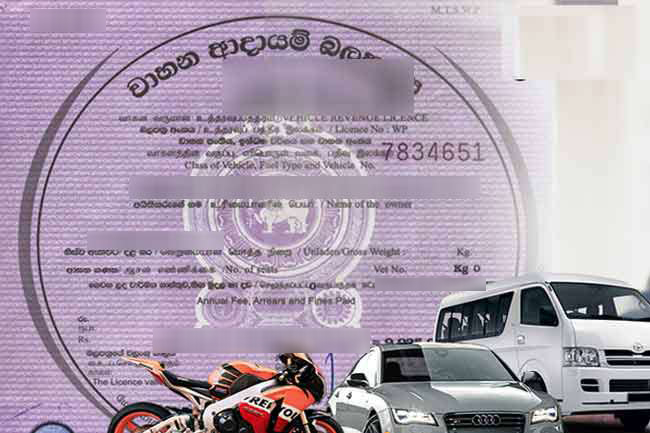
Electronic Revenue Licence System Temporarily Unavailable
ON: July 6, 2025 -
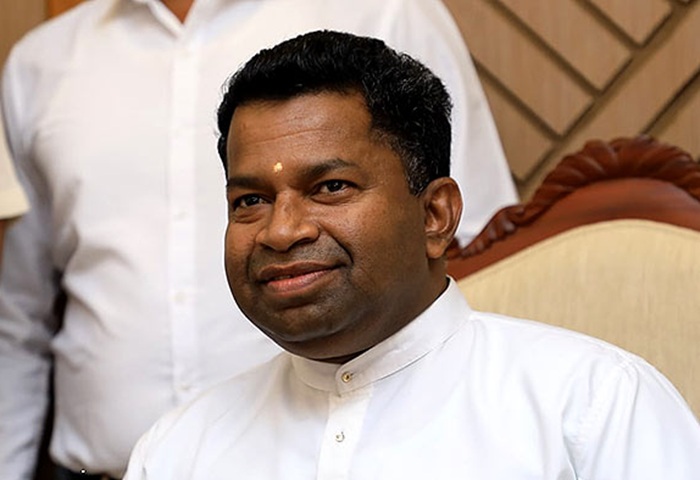
Pillayan’s associate “Iniya Bharathi” arrested
ON: July 6, 2025



